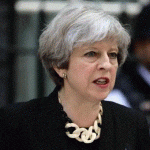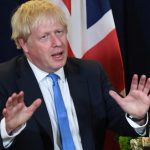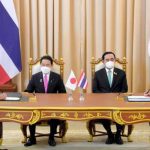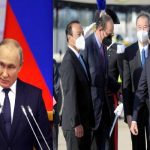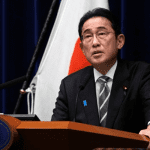Prime Minister of Japan, Fumio Kishida has announced that he will not run in the upcoming party leadership vote in September.
Mr. Kishida, in a surprise move Wednesday, said he will not run in the upcoming party leadership vote, paving the way for Japan to have a new prime minister.
Kishida, who was elected as president of the Liberal Democratic Party in 2021, is stepping down as his three-year term ends.
His decision comes amid declining public support, with his approval ratings falling below 20% due to recent party corruption scandals.
Whoever wins the party vote will succeed him as prime minister because the LDP controls both houses of parliament.
A new face is a chance for the party to show that it’s changing for the better, and Kishida said he will support the new leader.
Stung by his party’s corruption scandals, Kishida has suffered dwindling support ratings that have dipped below 20%.
In order to achieve policies to tackle difficult situations in and outside Japan, regaining public trust in politics is crucial, Kishida said.
Kishida said he has been mulling his possible resignation for some time but waited until he could put his key policies on track, including energy policy that calls for a return to nuclear power, a drastic military buildup to deal with security threats in the region, and improving ties with South Korea, as well as political reforms.
Several top LDP MPs have been mentioned as potential candidates, including party Secretary-General Toshimitsu Motegi, Digital Minister Taro Kono, Economic Security Minister Sanae Takaichi, and Foreign Minister Yoko Kamikawa.
A winner will succeed Kishida as party president and be confirmed as the new prime minister in a parliamentary vote shortly after. The date of the LDP election is scheduled to be decided next week by the party executives.
Since the corruption scandal surfaced, Kishida has removed a number of Cabinet ministers and others from party executive positions, disbanded party groups that were blamed for facilitating money-for-favor politics, and strengthened political funds control legislation. In January, ten politicians and their aides were indicted.
Despite Kishida’s efforts, support for his government waned.
The scandal revolves upon undisclosed political cash generated through ticket sales for party events.
It involved more than 80 LDP MPs, the majority of whom belonged to a prominent party group previously led by slain former Prime Minister Shinzo Abe.
The assassination sparked a controversy over the LDP’s decades-long, deep-rooted ties to the Unification Church, for which Kishida has also been chastised.




